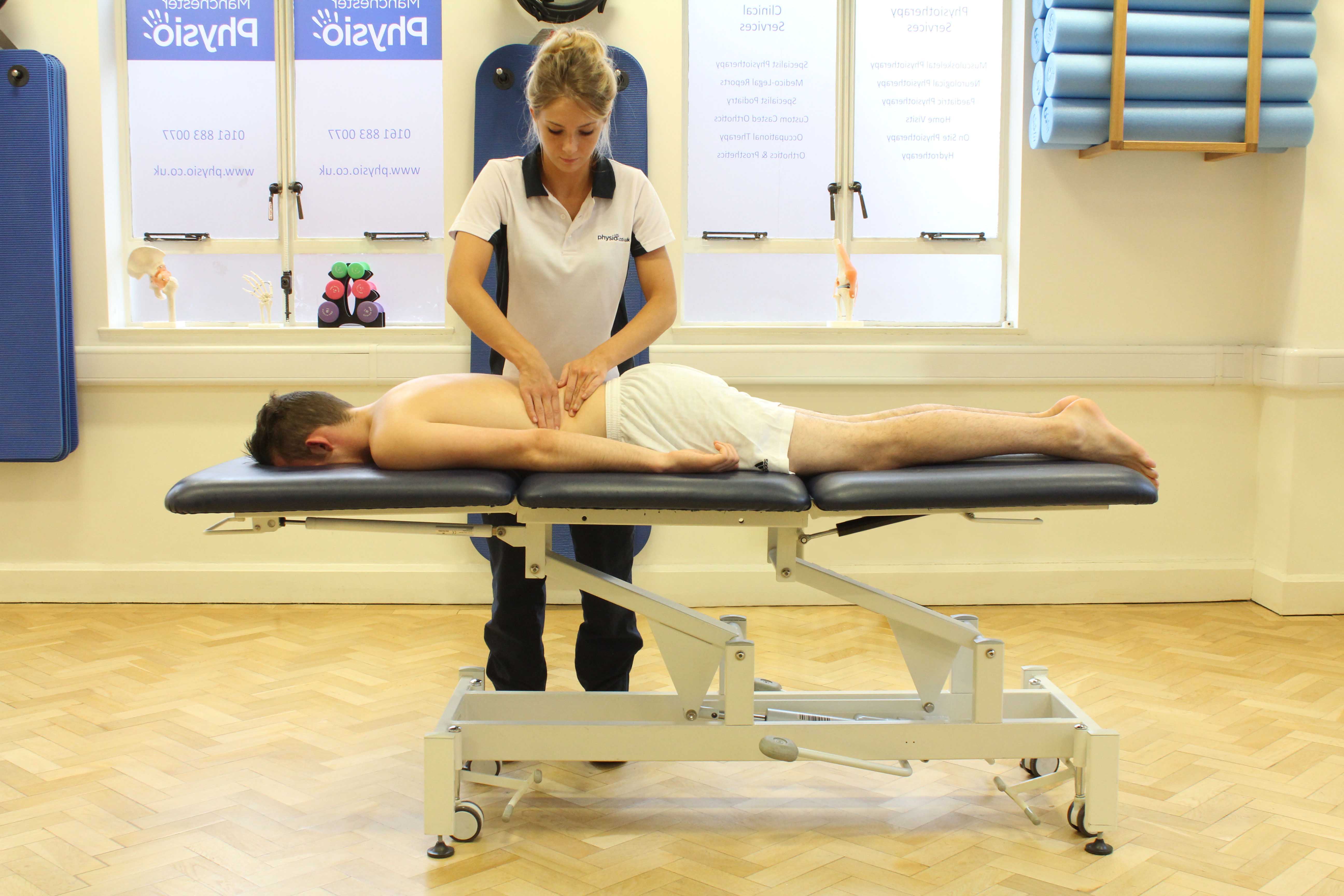What is a weak anal sphincter?
A weak anal sphincter refers to weakness in either or both of the two rings of muscle located in the anus. A weak anal sphincter can result in being unable to control bowel movements and may result in faecal incontinence.
 Above: Deep tissue massage of the lower back by a specialist massage therapist
Above: Deep tissue massage of the lower back by a specialist massage therapistWhat causes a weak anal sphincter?
There are two sphincter muscles which wrap around the anus: an internal and an external sphincter. The inner ring or internal sphincter is an involuntary muscle, which is closed at all times except when opening the bowels. The outer ring or external sphincter is a voluntary muscle, which can be tightened up voluntarily to close strongly if you have urgency to open your bowels. Damage or weakness to either of these muscles can lead to faecal leakage or incontinence.
Weak anal sphincters in men can be caused by:
- Injury to the sphincter muscle (for example due to rectal surgery)
- Straining, constipation, or general wear and tear
- Damage to the nerves innervating the muscle
What are the symptoms of a weak anal sphincter?
Symptoms of a weak anal sphincter can include:
- leakage following opening your bowels
- leakage during exercise
- small quantity of stool being passed when passing wind
- leakage following coughing/sneezing
How can physiotherapy help people with a weak anal sphincter?
Physiotherapy exercises can help strengthen the external sphincter muscle so it provides more support, this may also help squeeze the internal sphincter muscle to help stop leakage. Biofeedback techniques can also be used to increase the strength of the external sphincter muscle.
Summary
A weak anal sphincter refers to weakness of the internal and/or external sphincter muscles which wrap around the anus. These muscles help control bowel movements. Damage or injury to the sphincter muscles, for instance due to heavy straining or rectal surgery, can lead to faecal incontinence or leakage. Common symptoms of men affected with a weak anal sphincter include leakage during exercise or when coughing or sneezing. Physiotherapy treatments can help improve symptoms through strengthening exercises, which are aimed at making the external sphincter thicker and stronger. Biofeedback techniques can also be used to strengthen the external sphincter. At Physio.co.uk our physiotherapists are well aware of the impact a weak anal sphincter and faecal incontinence can have on a person’s day-to-day life. We are here to help.
If you would like more information or to book an appointment call Physio.co.uk today on 0330 088 7800. Alternatively, you can also book an appointment online!

 0330 088 7800
0330 088 7800


































